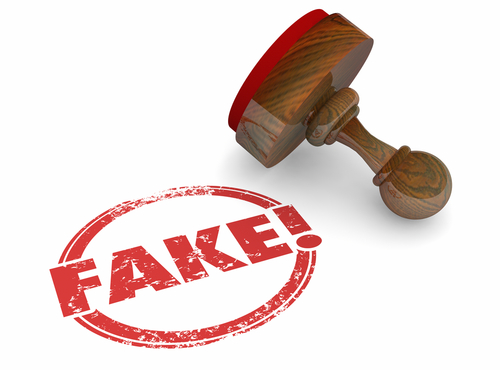Imposter lawyer who filed document in Cosby case wins reversal of his conviction

Image from Shutterstock.
A federal appeals court has overturned the false statements conviction of a man who posed as a lawyer to file a document in civil litigation between actor Bill Cosby and sexual assault accuser Andrea Constand.
The 3rd U.S. Circuit Court of Appeals at Philadelphia overturned the conviction of Joseph R. Johnson Jr. because there was no showing that his false statements were capable of fooling the judge in the case and influencing any decision.
Law360 has a report on the Nov. 23 decision.
Johnson, of Fort Washington, Maryland, had been sentenced to 32 months in prison after his convictions for aggravated identify theft and making false statements in a federal court filing, according to a February 2020 Department of Justice press release.
Johnson had used the name of Constand’s attorney to file a document in Constand’s 2015 lawsuit against Cosby alleging defamation and invasion of privacy. The document was an unsigned IRS form alleging that Constand failed to report income from “baseless lawsuits.”
Constand’s 2015 civil suit had alleged that Cosby’s denials of rape allegations violated a settlement in a 2005 sexual assault suit that she filed against the comedian.
When the clerk court uploaded Johnson’s paper document to the docket, Constand’s lawyer received an email notification. The lawyer notified the judge, who struck the false paperwork and explained that the filing “was fraudulent and was not filed by the attorney whose purported signature appears on the document.”
The appeals court said the false statements conviction must be reversed because the evidence was insufficient to show that the false statements were material to the judge. The court also reversed the identity theft conviction because it was based on the false statements conviction.
The false statements law bars knowingly and willfully making a materially false statement in a matter within the jurisdiction of the federal government. Materiality requires evidence that the false statement was capable of influencing a reasonable decision-maker and that it could have an actual bearing on a decision entrusted to the decision-maker, according to the appeals court.
“Johnson’s behavior wasted public time and resources and distracted court officials from their work,” the appeals court said in an opinion by U.S. Circuit Judge Paul Matey.
“But only Congress enjoys the authority to turn conduct into a federal crime. And while the government presented plenty showing that Johnson’s statements were false, it offered no evidence and elicited no testimony from the only individual it proposed as the government decision-maker—the judge in the underlying litigation—to explain how the filing could influence a judicial decision.”
Cosby was convicted of sexually assaulting Constand in a separate criminal case. The Pennsylvania Supreme Court overturned Cosby’s conviction in June, finding that he was protected by a former prosecutor’s decision not to prosecute, so Cosby could be forced to testify in Constand’s sexual assault suit.
Write a letter to the editor, share a story tip or update, or report an error.


